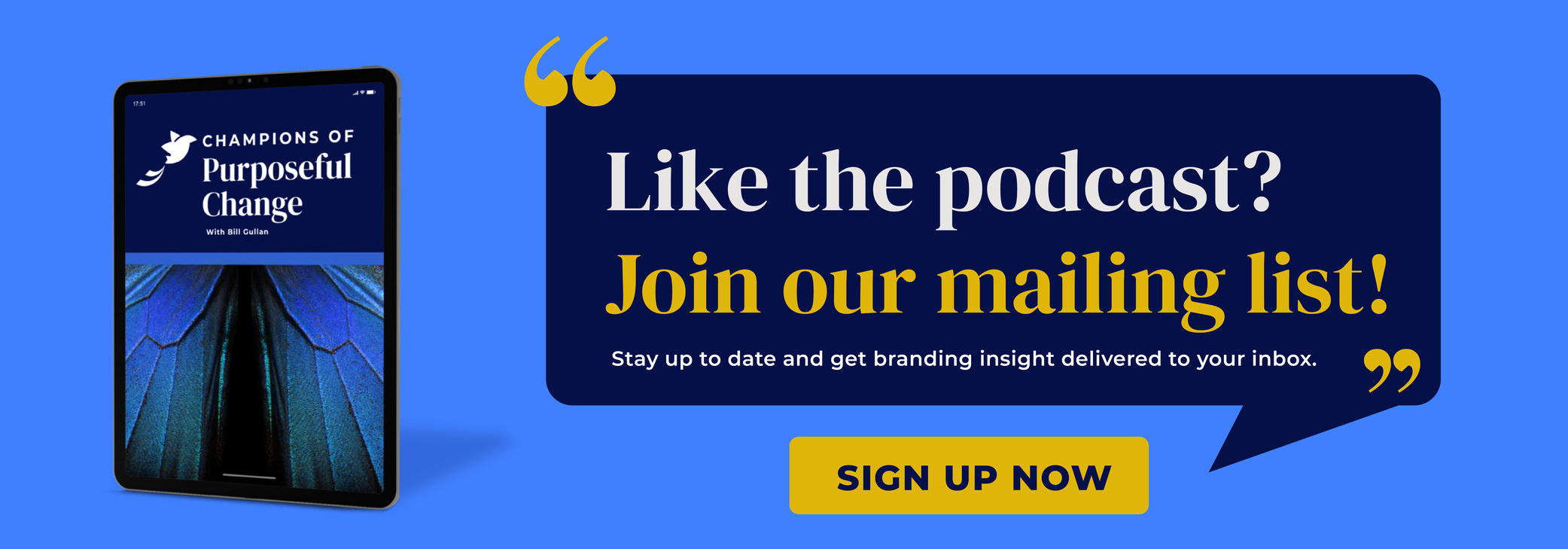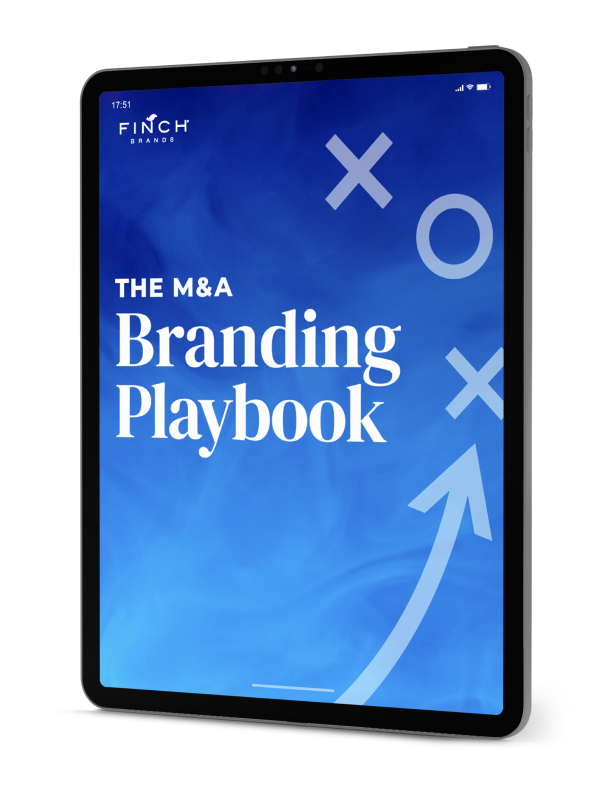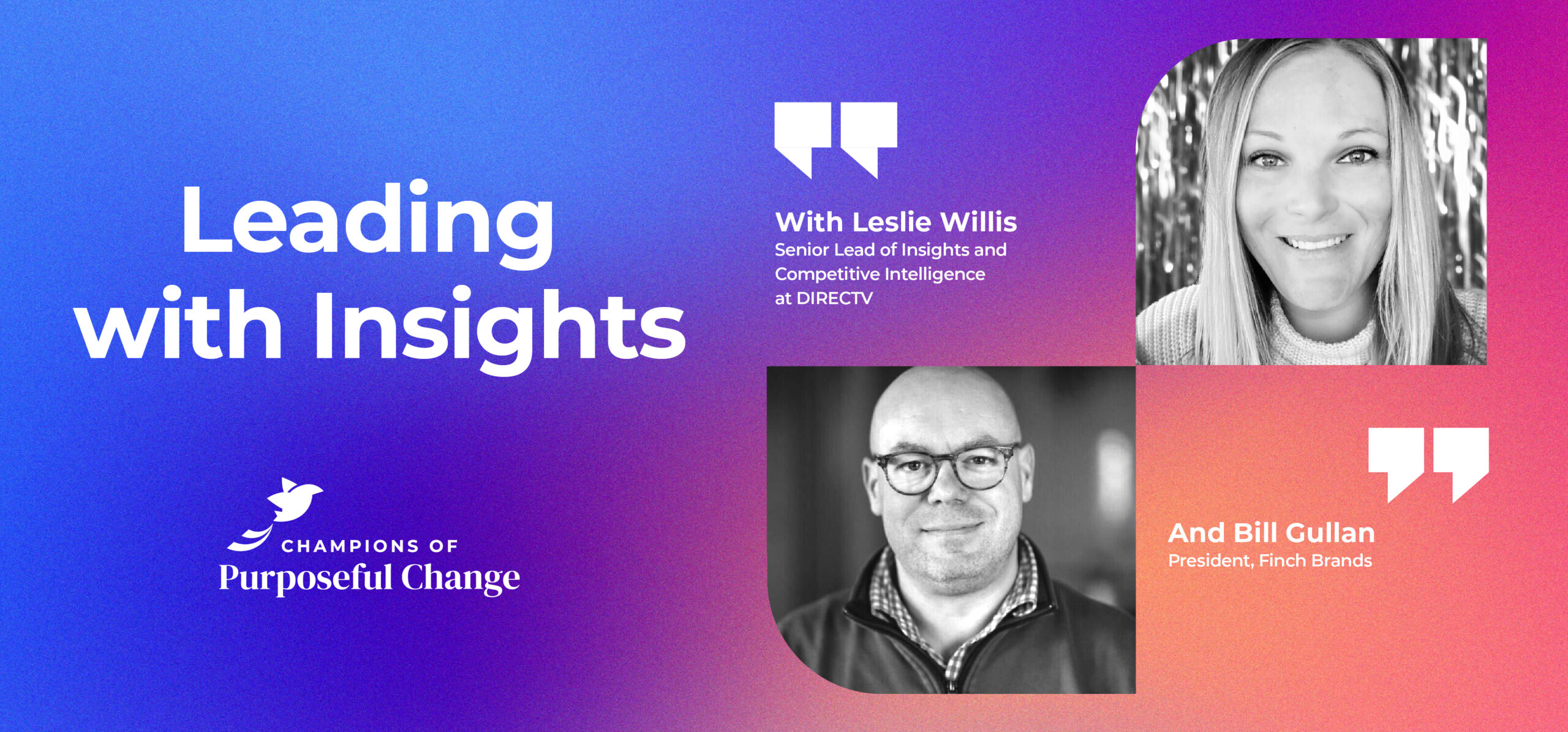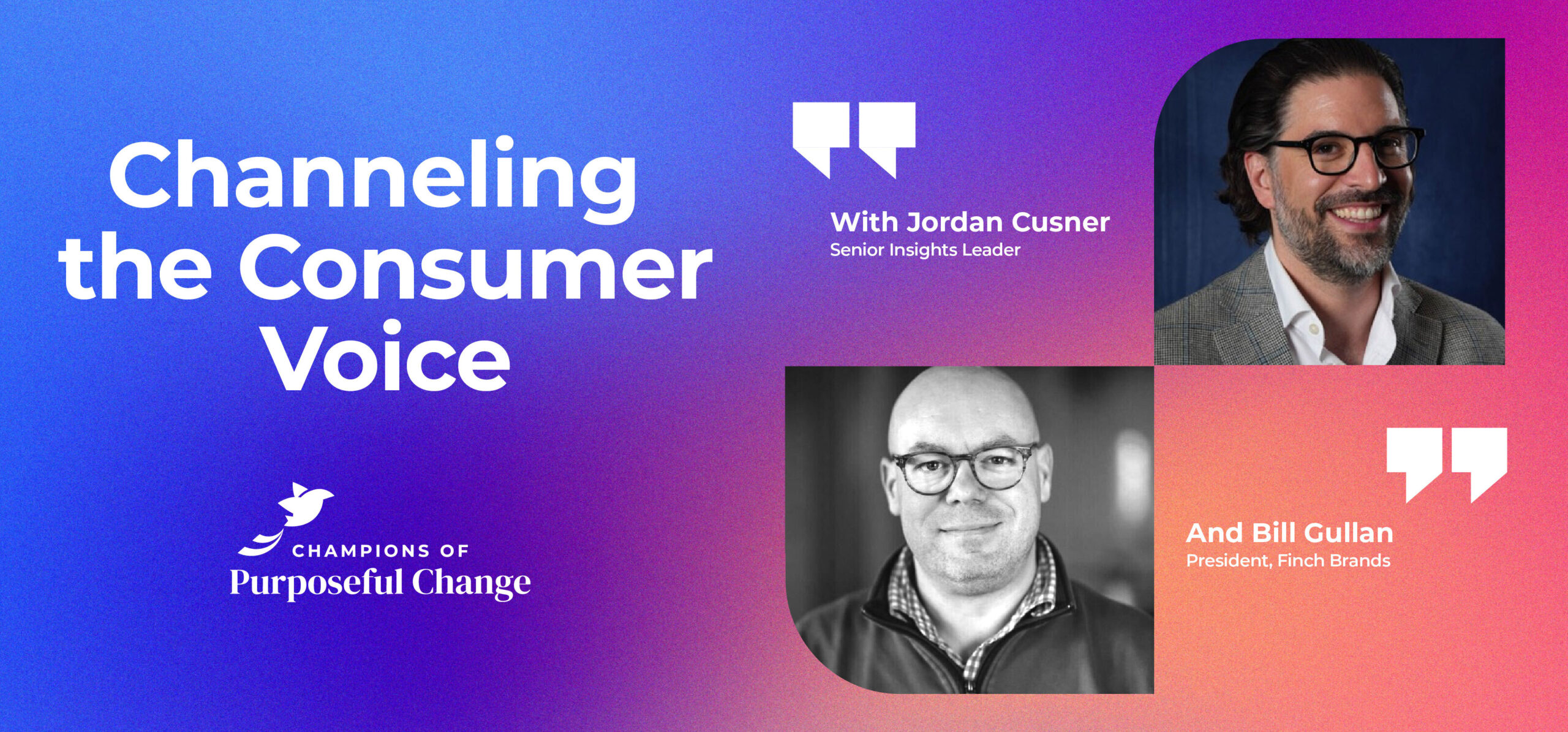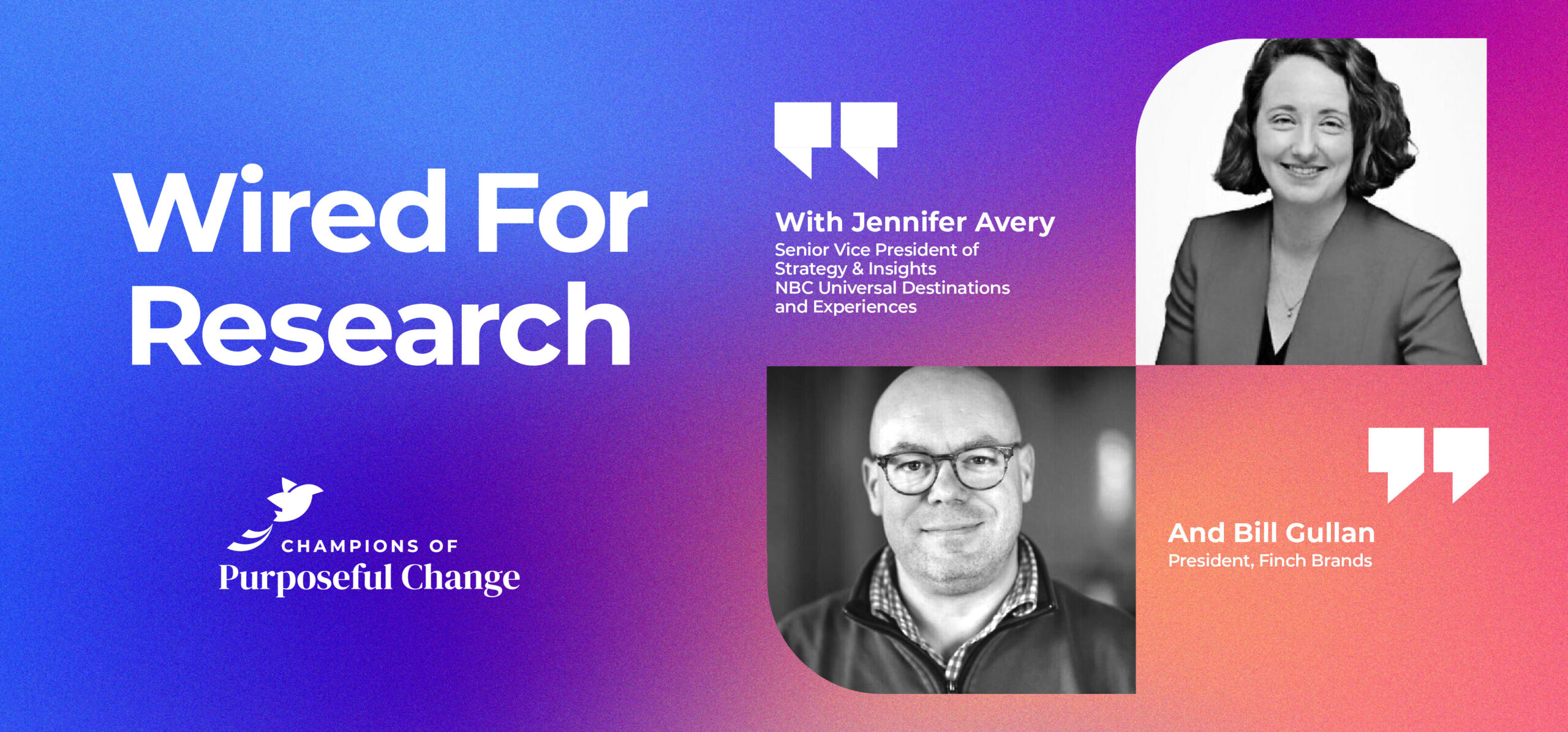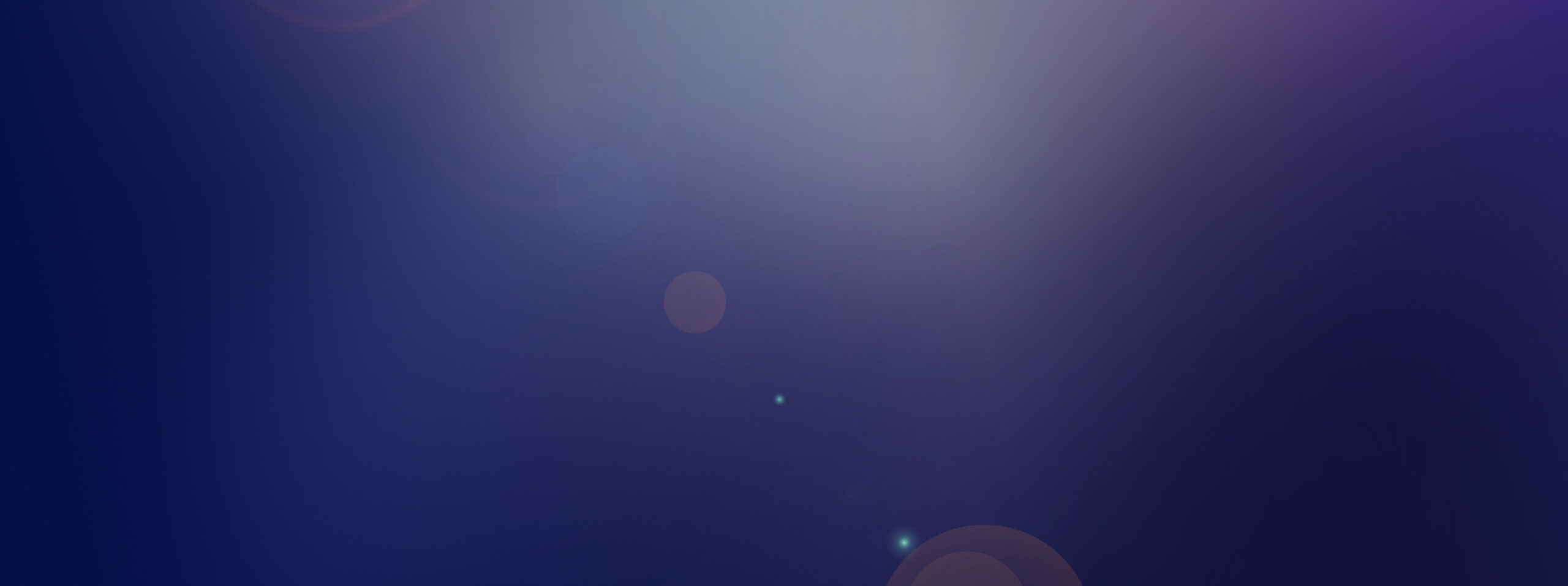Branded Tech: Chris Cera, CEO of Arcweb Technologies
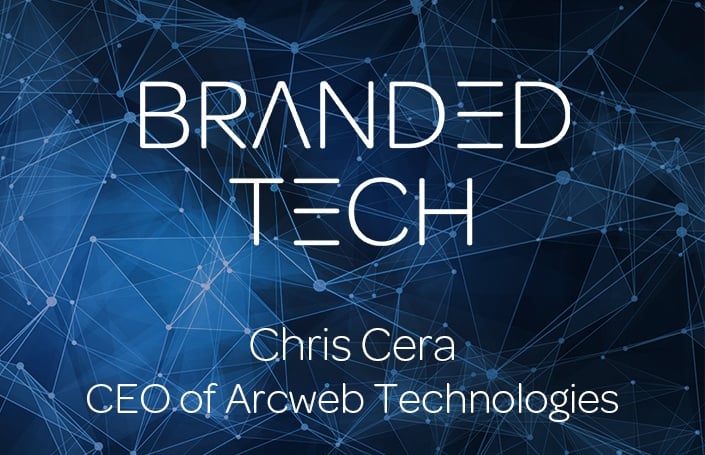
In this week’s episode, we host Chris Cera, Founder and CEO of Arcweb Technologies, a digital product design company. He shares his insights on the role of the brand in custom software solutions and app development. If you like our podcast, please subscribe and leave us a rating!
Podcast: Download Subscribe: iTunes | RSSTranscription
Chris Cera: I do think that there is a revolution of sorts that is happening, and that people realize that they need to care about user experience and customer experience.
Bill Gullan: Greetings, one and all. This is Real-World Branding. I’m Bill Gullan, President of Finch Brands, a premiere boutique branding agency. Today, a pleasure of an interview with Chris Cera, the founder and CEO of Arcweb Technologies. Arcweb is a fast-growth, highly regarded, really innovative and interesting company that happens to be in our backyard, but with tentacles that expand, certainly, beyond it.
They are a digital-product design & development firm. They focus on clients in the financial and healthcare sectors. Our conversation veers in the direction of the role of brand endeavors such as those that they regularly entertain, as well as some thinking about Chris’s own story in terms of building the Arcweb company and brand, so enjoy Chris Cera.
We are here. This is the fifth floor, Chris, is where we are in this building.
Chris: Yes.
Bill: We’re here with Chris Cera, who’s the founder and CEO of Arcweb Technologies. Steve, our executive producer, and I decided we were going to walk this thing. There’s a Fitbit challenge. Up we come to the fifth floor, and there’s this highly attractive shaved-head guy, like me, to greet us, and no one else. We’d read all this stuff about this fastest growing … Second in the Philly 100 Fastest Growing Company, 25th nationwide in the software category. All this growth. Where are these people? We ask Chris. Today is a Thursday, so why’s there nobody here?
Chris: We let people work from home on Tuesday and Thursdays.
Bill: Nice! That’s great. Quiet for us to talk through various things regarding your career and the industry, and also a bit of exposure to something interesting culturally. Chris here. Thanks for being with us.
Chris: Pleasure to be here. Thank you.
Bill: Arcweb Technologies. Before we dive in a little bit to where what you do hits brand and some of the things that we’ve been talking about and thinking about, give us a little bit of the scoop on Arcweb and what you all are up to.
Chris: We are a digital-product design company. We’re focused on the healthcare and finance sectors. Our mission is to build products that people love. We’re about 35 people here in Old City, Philadelphia, majority of which are software engineers. The next tier is designers and user-experience designers, and then the top tier is product management and strategy, so we have a number of product managers here.
Bill: Terrific. Healthcare and finance, there seem to be some common threads there in terms of regulatory environments. There seem to be common threads, perhaps, in both of them becoming a little bit more like retailers, a little bit more consumer-focused, perhaps, but how’d you wind up with those two shining verticals within the business that you’ve built?
Chris: In my last company, we ended up doing a lot of work in the banking sector, and so then, after I had left that company, basically, that was one of the industries that I had a lot of experience in. I’d done about 15 projects in the banking sector, so I was essentially branding myself to a degree as a fin-tech person and a fin-tech consultant.
Naturally, starting Arcweb and everything, we started to get projects in in the finance category, and so it was banking, wealth management, overtime insurance. Then, like you had mentioned, they’re very similar, so a lot of the same people cross over from one of those industries to another, because there’s a lot of similarities. So then we started to get a lot of healthcare business. In the last year, we won a healthcare product innovation award with Penn Medicine, one of the largest health systems around here, so we’ve been doing a lot of work in healthcare lately.
Bill: There’s a lot of it here within the region, obviously. That’s fascinating. We’ll get a little bit more into your journey, and the journey of the company, the growth of the company, as we continue. One of the things that I was thinking about, you’re all doing a lot of digital-app development that may be mobile or it may be, I guess, web, you would call it. Given the topic that we’re here to discuss in terms of our podcast, what’s the role of the brand?
We were talking earlier about you’re not a branding guy, but the brand, obviously, is important, it would seem, to expressing something through whatever one builds and offers. Could you speak to where brands intersect with what you all are doing on the technology-development side?
Chris: Sure. It’s absolutely important from a marketing perspective, and depending upon whether it’s a B2B or a B2C company, the brand has benefits and drawbacks depending upon what it is. That’s different depending upon whether it’s a B2B play, essentially, versus a B2C play.
For what we do, digital-product design, development, we’re often asked to solve a very specific problem, and if it’s in a financial services company, it might be something that’s internal to the company, not necessarily externally facing. So we come in there, come into a new company, and we do needs analysis, research, and try to come up with strategy for what is going to solve essentially a functional problem, and then the design and the branding will come in later.
It’s definitely evident in the visual design, how it looks and feels, so if you’re going to do an app, depending upon the audience, you might choose the color pink or you might not choose the color pink. Pink is one of those colors that has a lot of different meanings depending upon how it’s used. It’s not like black. I usually wear black clothes. I’m colorblind, so it doesn’t say much. I can blend in and everything else.
Bill: It’s sliming. You look great. Just for our audience. To your point, you get to a juncture in the process where things like look and feel, things like voice, I would imagine, enter into the workflow.
Chris: Absolutely. To give an example, one of the places I had worked years ago was at ING Direct, and I did a check-processing product that was used on desktops. For example, in a coffee shop, you could go in, and literally, there was a scanner where you could scan a check. This was right around the time, or slightly before the time, that you could scan a check with your phone. I can’t remember the exact messaging, but ING Direct had some very, I would say, punchy, get-in-your-face, get-noticed type of marketing. Their billboards were very punchy. I’m not sure if punchy is a technical term, but it kind of punches you in the face.
Bill: That’s what they teach in business school. ‘Let’s get punchy, here.’
Chris: When you’re not expecting, it kind of hits you in the face. They said something like, ‘Yes, you can really scan a check here,’ or something like that. It was something better. It was much better than that, but it was … I felt like that brand really spoke about that product in a very different way than I think a different bank would have chosen to speak about it.
Bill: I’m sure it was orange, too, when it comes to brand colors.
Chris: There was definitely elements of orange all over it, yes.
Bill: One of the things, we don’t have to go too deeply into it, or as deep as you’d like, but that we were talking about is your own branding experience with building Arcweb and some of the other things you’ve done along the way and in leadership roles that you’ve had. What’s the story behind the Arcweb name and how your brand has evolved overtime?
Chris: Jason Fried from Basecamp had said a long time ago. He had a BasecampHQ.com, or something like that. It wasn’t Basecamp.com, and so people would always comment, because he was growing a business very rapidly and didn’t have a .com, which, at the time, was like a, ‘Hey! How are you doing that?’ type of thing, and he made the point, ‘It doesn’t matter as long as they can find you on Google, and you’re the first hit,’ and so that has always stuck with me. I’ve oftentimes repeated that, because if people can find you, even if it’s a commonly misspelled word, but Google actually knows what the common misspelling is and still presents the right answer, that’s, in some cases, just as good.
Arcweb, the A-R-C is actually the first three initials of my grandmom’s name, and then the web was just kind of bolted on there. I figured that web is this thing that is never going to go anywhere, kind of like I feel like mobile, eventually, will be hot and die, but I felt like the web is eternal. I have a computer-science background. The web is what connects everybody from a networking perspective, so I felt like the web would be a name that would be more built to last.
I figured that people would know how to spell it correctly most of the time, although I never checked A-R-K Web. It would be interesting. I’m going to Google that when I’m done with this. Anyway, so that was the thinking that had gone into it.
Bill: Despite the interesting back-story of regarding the personal side of it, arc as sort of an umbrella shape. I never would have thought that, but I still would have maybe had an idea of what you all might be doing, what the focus might be. It’s interesting.
Chris: Our first logo, I remember when we did some focus-group-like things with it, we were told that it was too masculine, and I think because the name had been decided, and then we had someone do the logo, and then it ended up maybe looking more like a weapon, so anyway, we did …
Bill: The fact that a tank was in it may have been a little bit more masculine, right?
Chris: More like a star, like a Chinese star-type of thing.
Bill: Nunchucks in the area. The whole ninja routine.
Chris: Yeah, so Arcweb was what later someone described to me as a vessel brand, meaning you can attach a number of things onto it, so we could have Arcweb Services, Arcweb, I don’t know, Managed Services. I have to come up with different names of businesses, but if we wanted to have ten different businesses, we could throw Arcweb somewhere in the name, if we wanted to, since it’s rather meaningless and means nothing.
Bill: Right. Well, that’s one of the benefits, from a nomenclature perspective, of being non, I’m not going to use … The pejorative might be generic, whatever the … What’s the opposite of pejorative? The positive might be that it’s not specific, and it’s flexible, and it has room to breathe. That’s cool.
I would imagine there’s a variety of different ways in which you all developed business, and widened your own acquaintance, and, as you say, probably truer now than it even was then, everything is search. It’s not organic, ‘I got to dial it in!’ We still have some clients who, when we’re in a nomenclature exercise, say, ‘Well, we have to get the .com, and it’s got to be ten characters or less, and it has to mean something!’, so you’re like, ‘I know exactly how to do this.’ You have to name it like a pharmaceutical that doesn’t make any sense at all, and hope the people remember it, and of course, there’s budgets you need to do to … Anyway. You’re not my therapist.
One of the other things I wanted to get your take on, given the role that you all have in building these applications and being in a software-inclined business – we’re recording this on the tail-end of yet another Apple product, the fall one, the September release, iPhone 7, and in the commentary about that, one of the things that seems to be standing out is a general belief in … They’re speaking specifically about Apple, and they may be right, but that it’s really all about software at this point.
The WWDC is far more interesting than the hardware release. What comes in the iOS upgrade is far more interesting and more meaningful than what happens in the hardware itself. There were some hardware innovations here: your phone, the headphone thing’s going away. We all know what was in it, but hardware is dead, they say; software is the future. Software is the present. I’m sure someone might have said that the moment before the iPod came out and been proven wrong, so who the hell knows what happens.
What’s your take when you look at the world, and you look at how technology’s expanding? Software’s obviously what this company’s grown on, built on, but your sense of how hardware and software work in with what the future’s like.
Chris: Marc Andreessen, Netscape co-founder, and Ben Horowitz of Andreesen Horowitz huge investor, invested in Facebook, Snapchat…
Bill: Great Twitter follow, by the way. He’s great to follow on Twitter. Very entertaining.
Chris: Yeah. Very amusing. He says, ‘software is eating the world,’ so that, I think, is probably the quote that I hear often used the most. I feel like there’s certainly been consolidation to some degree in the hardware industry, at least in the sense that the phone itself is kind of the focal point, or at least the sinking point, or something, in a lot of devices, which wasn’t as clear 5+ years ago or maybe 10+ years ago.
I think the age of personalization in a lot of industries is happening right here, right now. So I think the hardware industry is extremely hot, in my opinion. I think a lot of software people avoid it intentionally, and people can make their own choices, but I think hardware is alive and well. I think there’s a lot of opportunities for small companies and innovative start-ups to try to disrupt what’s happening right now, so I think it’s an exciting time for hardware. I think there’s certainly some … The big players, like the Apples of the world, that have best stock prices on Wall Street and whatnot, they’re playing it at a different game, but I think at least for the small guys, there’s plenty of opportunity.
Bill: One of the things, before we started, you mentioned Nest, those other hardware plays. If you’re in the 7th generation of an iPhone, it makes perfect sense that it’s not going to be a quantum leap. It might be slimmer, or it might be bigger, or it might be messing around with the headphones or whatever, but to your point, there have been ideas that eight full years ago, like Nest, so home automation, that is software-driven but also hardware being essential to it, that we may never have contemplated, and holy crap, it’s here, it’s amazing.
Chris: That’s right, and so many things are being interconnected, too, so an ADT system today, for instance, actually can connect to a Nest, which isn’t even provided by them, but you can literally change the temperature of the thermostat in your house on your Nest from your ADT system. A lot of these interconnections are happening. It’s a pretty exciting time.
Bill: It is. What a big, wide, interesting world. With regard to what Arcweb’s doing, and I know that you are, just as we are, constrained a bit by confidentiality, and by things that may be still in development and may not be out there, but are there a couple of projects in recent years or whatever that you’re particularly proud of, and that were really stimulating, that you and your team completed that have really solved a functional issue and maybe even gone further?
Chris: Yeah. One example is the Penn Medicine Our Directives Project, which is to help patients complete their advance directive, which is essentially part of a will. When someone passes away, hopefully they have a will, and one of the four parts of the will is a healthcare advance directive, which says, ‘I don’t want feeding tubes. Do not resuscitate. Who’s my healthcare proxy?’ All of the things that … The legal form is very different than how people oftentimes will talk about it, which is part of the challenge of people completing these forms correctly.
Anyway, Penn had set out to solve this problem, and from an experience perspective, we had to, basically, design the experience of how someone would fill out this form. There’s a lot of things from a choice-architecture perspective, and how I ask you the question, like, ‘You don’t want feeding tubes, do you?’, and you can really influence how someone’s going to say yes or no.
This is one of these morally distressful problems in the world where families, doctors, attorneys, estate planners, these can get very legal, very ugly, and very sad. Anyway, it’s an area of moral distress, and I’m really proud to have been selected to work on it and have a project be successful, go through multiple stages, and be something that was award winning, in our case. That’s an example.
Bill: Awesome. A great one. I know there’s hundreds of others, both in your wake and probably on the drawing board right now. You mentioned the word experience. I’ve often bemoaned, both on this podcast and to anyone who will listen, which is a decreasing number of people, how the word branding and the word strategy are two words that have been used so widely and diffusely as to now mean absolutely nothing. I feel like user experience is getting closer in that direction, but as someone who’s a genuine authority, and practitioner, and leader when it comes to UX, how do you think about UX and what it means in terms of the work that you all are doing, and how folks ought to think about it out there?
Chris: I do think that there is a revolution of sorts that is happening, and that people realize that they need to care about user experience and customer experience. I think it’s very different, depending upon what industry you’re in, or what problem that you’re trying to solve, but I think a lot of it is really just are you really interfacing, are you asking the right questions from all of the people that have to interact with this system?
Sometimes, the people don’t interact directly with the system, but they do, whether they receive some form of report or an email, and there’s all these different ways of basically working and solving a problem through workflows. So, much of experience is just a new word for workflows, in a way, or operations. I would agree it’s definitely an overly used term, I think, in the sense that I see a lot of other companies touting their user-experience skills when in fact they’re not really practitioners of it.
Bill: Just to be clear, your definition of it is really about the touch points and the workflows related to … Maybe you’re better at expressing it than I am.
Chris: I wouldn’t say I have a great definition, but I think it’s just about the experience of the people that have to interact with the problem that you’re trying to solve, and trying to make sure that you really understand the stakeholders, you really understand what their concerns are, what they need to get out of it, and then you’re weighting those appropriately.
Because as a product manager, at the end of the day … I heard a joke used once, that the goal of the product manager is to disappoint the least number of people. Kind of like a good artist, or a good piece of artwork, the artist chose not to add everything. They chose, at some point, ‘I’m not going to add a lot of things,’ and so things that you don’t add, in a lot of ways, are just as important as the things that you do add. It’s kind of like how do you weigh all of this feedback, at least be conscious of it, and make a decision, and ship something that ultimately is going to disappoint the least number of people?
Bill: Yeah. No, I think that’s a good way to think about it, as someone who disappoints family and colleagues on a daily basis. When you think about your own journey as a business builder, and as a professional with an incredible resume and set of success stories along the way, what have been important things to you as your career developed, whether it’s mantras or core principles that have helped guide you to make good decisions? What are some things that have been important to you as you’ve grown as a businessperson and a leader?
Chris: Well, this is actually the fourth company that I’ve started, the second that’s actually gotten traction. I try not to use the word success, because I feel like success has to be measured at the end, so second company that’s gotten traction, and second one that made it out of the dining room. My last company wasn’t anything to write home about, but it wasn’t a total failure either.
Anyways, as far as my reflecting on the journey and whatnot, I would say that I have a thirst for learning and constantly trying to learn different things, so as I’ve been able to change my career from being a software architect and a coder, essentially, and more into a business guy, I’m still very challenged in everything that I’m doing. I’m still a maker, so part of this company was to try to build a community of people that are happy to be around each other and have this colloquial community feeling about them.
Part of Arcweb, I feel like, is a community where people … I have a lot of people here that have said, ‘This is the best job I’ve ever had,’ which, to me, is very meaningful and very valuable, and so we’re trying to build a place where people are really happy. That’s what I’m focused on the most. I’m not focused on valuation, exit strategy, or any of that.
Bill: Those are consequences, right?
Chris: Yeah. I’m trying to build a great place to work, and a place where we get jazzed about solving problems. Our mission is to build products people love, and I love that mission statement, because I love building stuff that people love. It keeps me going to work every day and I’m constantly challenged.
Bill: When you wear your various hats, obviously, the business processes and whatnot, but you seem to have the soul of someone who wants to be out on the floor making stuff, how do you, in your own life, balance the various demands that exists for your time from clients, from colleagues, from just the various stuff that won’t get done without you? When you think about your days and how you’re channeling your passions, what does that look like?
Chris: The hardest part … I’m always trying to replace myself. Part of the goal is to just make myself completely replaceable in all these roles. Early in Arcweb days, I actually was writing software for some of my clients. I was a project manager. I was a software architect. Then doing business development, I’m a BD guy as well, so I’ve had to do all of these things. Again, part of that is learning, but then teaching others how to do those roles and how to create a career path and a growth pattern for them has been an exciting part of the challenge in trying to groom the next generation of leaders.
A lot of people … In the tech industry, everybody needs … You need a lot of new … You have to keep keeping people interested every couple of years. Otherwise, they’re going to get bored and go do something else, so it’s easier to keep them interested when you’re a high-growth company, and so with the mindset of ‘I need to be replaceable,’ I’m constantly creating new opportunities here at Arcweb. I’m filling them first, and then I’m building them to someone else, so it’s kind of building this stack of great people along the way. Again, that hits back to the community thing.
Bill: To that end, you talked a little bit about culture. People love collaborating, except Tuesdays and Thursdays, apparently, over here, which makes sense, and I can see someone, a lot of people, really, depending on where they are in life, or geographically, really, finding value in that. Without offending anyone … Well, no one’s here, other than you and Steve. The occupation in which you and your colleagues exist is not always associated with gregarious types of people who are maybe as socially adept as others, and again, totally unfair, but when it comes to culture, when it comes to collaboration, when it comes to building a supportive, winning company, are there a couple key principles that help drive your efforts that maybe require, particularly in a space like this, where folks may not be as emotive as they might be in other environments?
Chris: Since we are a consulting company, and we’re services-oriented, we’ve had to apply a filter in the very beginning before we hired them, that they have to be able to communicate effectively and do a lot of the stereotypical things that technical people lack in terms of skills, whether it’s communication, eye contact, just body language. To be honest, I struggle with all of those things. I’ve made it somewhat of my mission over the last ten years to just be a better communicator, but for a long time, I was that person in the corner, banging out code, and not communicating as much as I probably should be.
The Tuesday and Thursday benefit, and I say benefit because it’s not really a benefit, because to some degree, since we’re a services company, we’re already tracking everybody’s hours to an extent, so it’s like we trust that the people that work here are going to do good work, and it doesn’t really matter where they are. We happened to win a Best Places to Work Award, which I’m proud of, and I’m sure that’s probably a part of it, but when I was an engineer, I really needed the time where I wasn’t in meetings, and I wasn’t getting bothered, so we try not to have any recurring meetings on Tuesdays and Thursdays as well, and just try to have that discipline and sort of DNA in the entire company.
Then the people that hear that, they are makers, and they’re not managers. Paul Graham has a very short post about this, probably ten years old now. The people that are makers, they can literally plow through an entire day in a coffee shop, in their bedroom, or whatever.
Bill: Your work’s probably heads down, I would think, at a certain point in the process.
Chris: Yep. Absolutely, so we kind of balance the best of both worlds. In our space, we have almost a bullpen. It’s a very big open room, and everyone can just tap anyone on the shoulder, myself included. We have that extreme, and then we have Tuesdays and Thursdays, so kind of, I feel like, the best of both worlds. That balance, I think, has built us a stronger culture and company.
Bill: Terrific. How many wins for the Eagles this year, or do you care? Doesn’t care. It’s going to be low, anyway, so I don’t know. I figured it’s about to start Sunday. Steve?
Chris: We’ll go with six.
Bill: Six wins? That’s not unlike what Vegas is thinking. Steve, what do you think?
Steve: I’m thinking 16 wins.
Chris: What about the playoffs?
Bill: My answer’s probably somewhere in between. I figure we can look back at this as the season goes on. Chris here, Arcweb founder, CEO, thank you so much for your time and your insight.
Chris: Pleasure to be here. Thank you so much.
Bill: Many thanks to Chris for his time and his insight. Even 5 1/2 years or so into the life of Arcweb Technologies, what a collection of stories, and successes, and growth, and excitement. Definitely a company to watch.
Three ways to help us as always. Get some of this business out of the way here. We certainly appreciate a rating in the app store of your choice. If we deserve it, five stars, or something similar, and comments as well, reviews as well of hopefully the value that folks are taking from what we’re doing here. As always, we love for that dialogue to continue @billgullan on Twitter, @FinchBrands on Twitter. Ideas for future guests, comments. Our skin is thick, as noted. As well as ideas for future topics, and just general thoughts about the world of brand and business building, which is really our focus here.
Then, lastly, just to make sure you don’t miss a one, if you want to click subscribe in the app store of your choice, this’ll automatically download when new content comes available. I’m looking at our executive producer Steve right now and suggesting that we haven’t always been predictable about what day and time. What we do here typically is in every other week, we have an interview with a brand and business builder, like Chris. In off weeks, weeks in between, we’ll do what’s called One Big Idea, which tends to be a smaller version of Real-World Branding, but focused on one particular concept. It’s designed to be actionable and quick. Hopefully, for those who may be thinking about particular topics, it’ll give them some sense of what to do tomorrow. Thank you all for your time and continued support of what we’re doing.
Signing off from the Cradle of Liberty.
